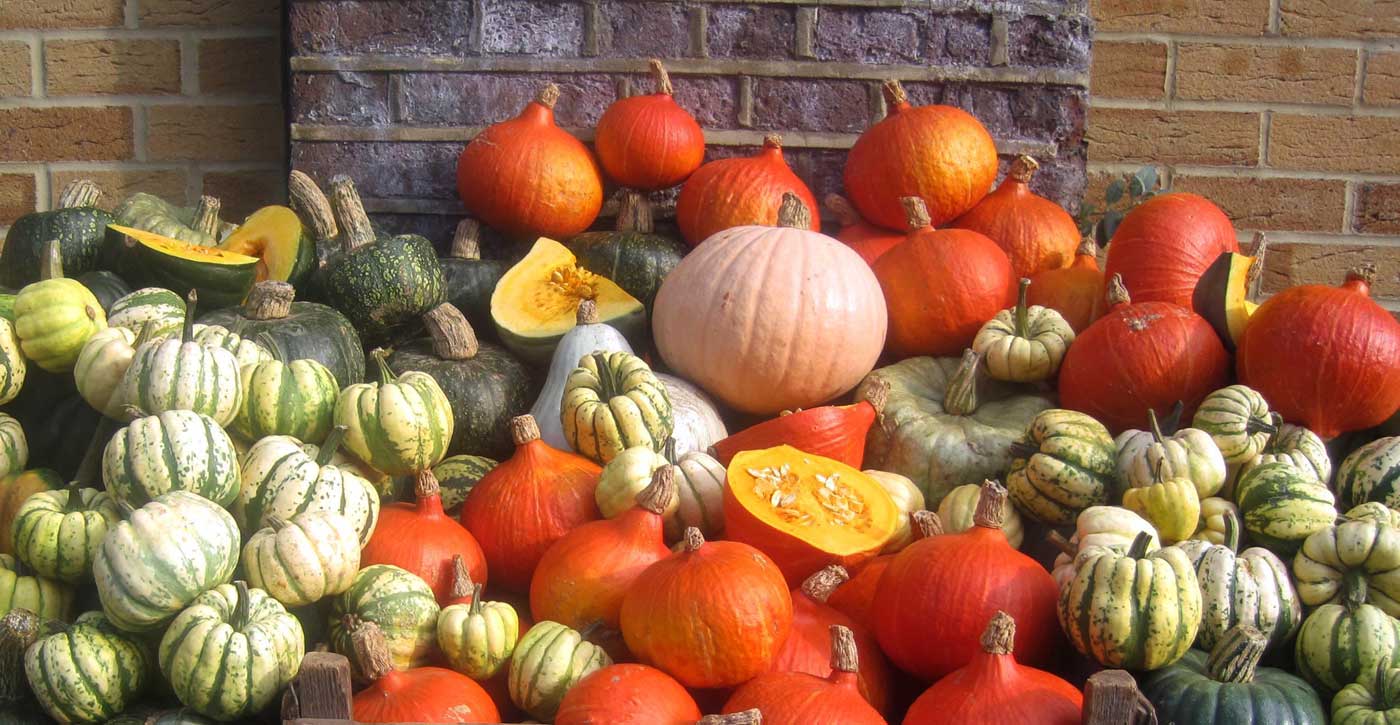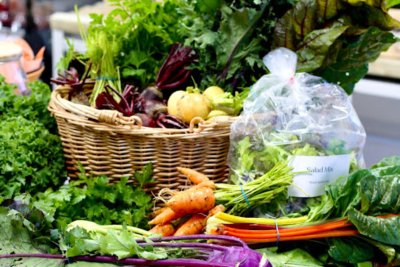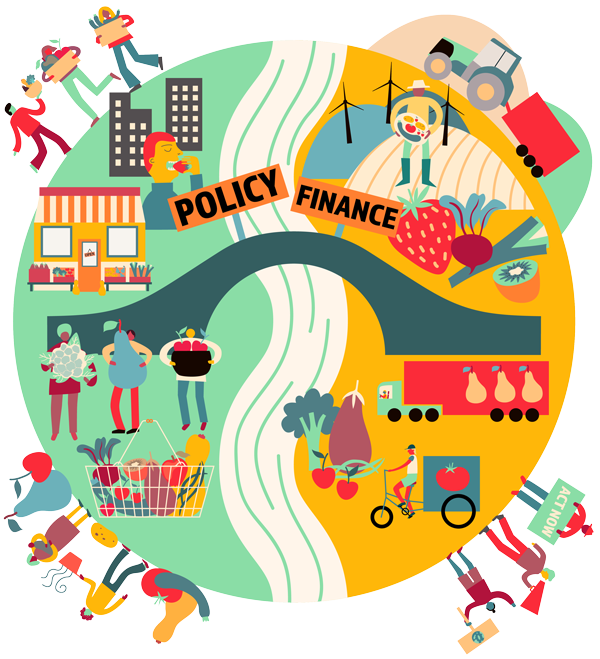
"Common rule book" for UK-EU food standards is welcome; many questions remain
The UK Government has today committed to negotiate with the EU for "a common rule book for all goods including agri-food" - Sustain's chief executive Kath Dalmeny welcomes the aspiration and raises concerns about the detail.
The UK Government has today published its negotiating position, agreed by the Cabinet at Chequers after a marathon session. The full text can be found here: Harmonisation on goods. Flexibility for services. UK management of EU tariffs in Britain. Government Brexit Chequers proposal.
Below, we share Sustain's initial response. We will be consulting with our members over the coming days and will share the responses here and via the Sustain Brexit Forum newsletter. Get on the mailing list to find out more.
Sustain welcomes the UK government’s aspirations to (quotes from Chequers statement):
- negotiate with the EU for “a common rule book for all goods including agri-food”.
- “maintain high regulatory standards for the environment, climate change, social and employment, and consumer protection – meaning we would not let standards fall below their current levels”.
Sustain remains concerned about the detail and practicalities, not least the UK's relationship with European institutions important to maintaining high food standards. We are also concerned about the protection of British food and farming standards in future UK trade deals.
British food producers, farmers and fishers are arguably the people and businesses who will be most affected by the uncertainties of Brexit, especially in relation to the rules and arrangements for border controls and tariffs, food safety and standards, animal welfare, consumer confidence and environmental protection. So it is welcome news that the UK government is starting to cultivate more certainty by stating clearly and unambiguously that it will negotiate with the EU for “a common rule book for all goods including agri-food”.
It also looks like welcome news, with some caveats, that the UK government says it will now negotiate to “maintain high regulatory standards for the environment, climate change, social and employment, and consumer protection – meaning we would not let standards fall below their current levels”. This is about everybody’s well-being, whether we opted to leave, remain or abstain.
The British food industry is the biggest employer in the UK, with 3.9 million people, many already in precarious and low-paid jobs. It is vital that they and our food supply experience as little disruption as possible. The majority of the food and farming industries have been arguing for continuing to share standards with our European neighbours - with only a few vocal outliers such as Wetherspoon gaining disproportionate airtime. There has also been perhaps understandable fury expressed by smaller-scale fishermen who were promised things that have turned out to be little more than fantasy, such as easy access to more fishing quota. Turns out, it wasn't that easy after all, because there is entrenched unfairness in the way quota is allocated - in the EU and in the UK - and because fish are no respecters of international boundaries.
The reason most of the food and farming industries have wanted continued alignment of standards with the EU is for certainty and to avoid unnecessary costs and knocks to consumer confidence. Also, for those that export food or import ingredients, to facilitate the smoothest trading relationships possible. From our experience of talking with food businesses – large and small – over the past two years, we believe the majority of the industry is likely to welcome the UK government’s stated aspiration to negotiate wirh the EU for “a common rule book for all goods including agri-food”.
Research shows that high food standards matter to all citizens, of all political persuasions. So we will need to keep an eagle eye on the UK’s Department for International Trade, urging Parliament to require that they are transparent in their approach to negotiating new trade deals, and prevent them from diverging from the "common rulebook" without proper scrutiny. The UK's negotiating position does not discuss how this process might work; the UK Trade Bill due in the next few weeks might (come on, Mr Fox).
It is not yet clear how the UK Government hopes to solve the conundrum of meeting EU food standards whilst also seeking trade deals with countries such as the US, whose food standards differ so much from our own – especially in relation to food safety, meat quality, animal welfare, environmental protection, highly processed foods, labelling, controls on junk food marketing, farm antibiotic use and more.
Nor is it clear if the UK government has yet come up with a practical solution to the Irish border question, to meet its stated ambition to "honour the letter and the spirit of the Belfast [Good Friday] Agreement".
Unfortunately, the process of the EU Withdrawal Bill has shown up many likely holes in our health and consumer protections post-Brexit, especially with the loss of the EU Charter of Fundamental Rights and several EU treaty principles. Fundamental legal principles of precaution in decision-making, and that environmental damage should be paid for by the polluter, remain in jeopardy – with as yet no firm plans for these to be incorporated into a new UK environmental protection body (come on, Mr Gove).
There remain many unanswered questions about the relationship between the UK and important institutions such as the European Food Safety Authority, as well as how the 'common rule book' will be enforced and the degree to which the UK will have a say in how that rule book evolves in the future. For example, we are just on the nail-biting verge of a landmark commitment within the EU to ban the prophylactic (just-in-case) use of farm antibiotics - will the UK be required to adopt this life-saving measure or not? Time will tell.
The next few months will no doubt be a rocky road in defining the all-important detail of what the UK government’s negotiating stance will mean in practice. And of course the UK and the countries the EU27 will need to agree to negotiate and agree the final arrangements. The willingness and practicalities (or otherwise) of EU states to accept the UK government's stated desire to “end free movement” and “end the jurisdiction of the Court of Justice of the European Union (CJEU) in the UK” may yet pull the rug from under our government’s stated aspiration of “a common rule book”.
We await the White Paper that will provide the much-needed detail.
Kath Dalmeny is chief executive of Sustain and convenes the Sustain Brexit Forum
Good Food Trade Campaign: Campaigning for good trade that benefits people and the planet at home and overseas.
Sustain
The Green House
244-254 Cambridge Heath Road
London E2 9DA
020 3559 6777
sustain@sustainweb.org
Sustain advocates food and agriculture policies and practices that enhance the health and welfare of people and animals, improve the working and living environment, promote equity and enrich society and culture.
© Sustain 2024
Registered charity (no. 1018643)
Data privacy & cookies






